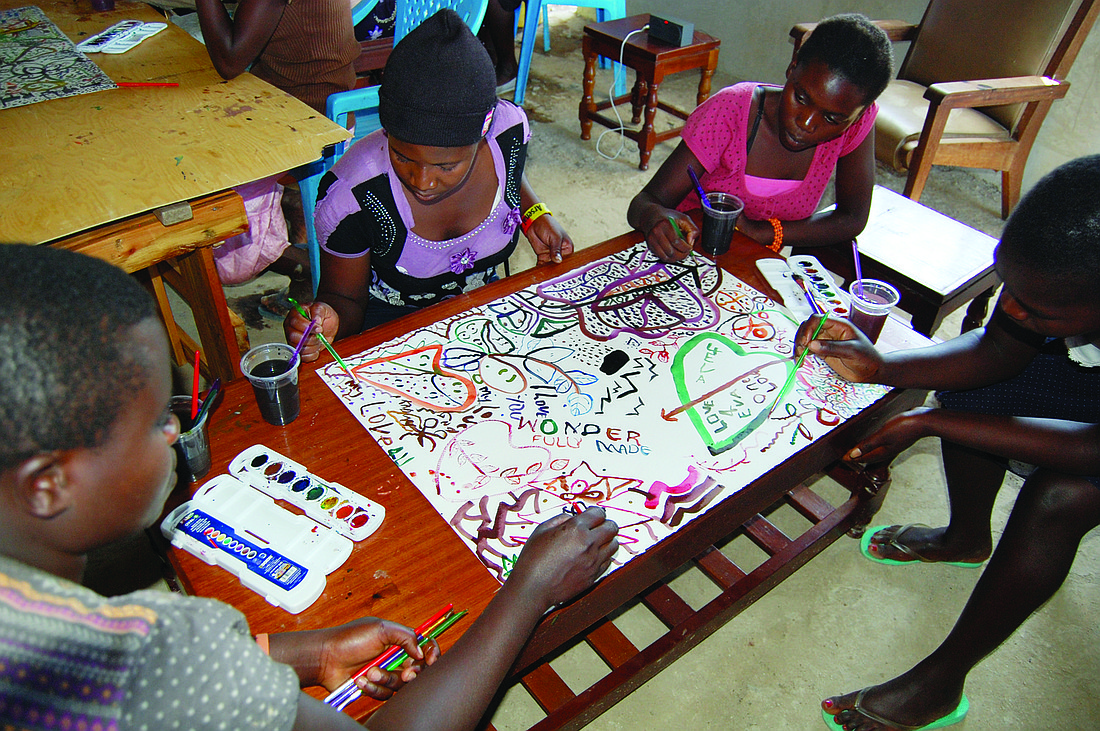- April 14, 2025
-
-
Loading

Loading

Kimberly Benson’s journey into healing arts began while she was enrolled at Ringling College of Art and Design. After seeing a poster advertising classes in art therapy at a school in Wisconsin, the illustration major was intrigued. Soon after, she enrolled in a psychology class at the State College of Florida, Sarasota-Manatee. She loved it so much that in 2002, after she graduated from Ringling, she immediately pursued her master’s in mental health counseling. In February, she’ll complete her doctorate in counselor education and supervision at Argosy University of Sarasota. Then, this spring, she’ll obtain an expressive-arts certificate from Expressive Arts Florida, an art therapy-training school based in Sarasota.
Benson’s own experience with art began at an early age. In second grade, she would interrupt class to show off the funny-looking creatures she’d drawn to escape her academic challenges in math, science and reading comprehension.
“Art was my place where I knew I couldn’t do anything wrong,” says Benson.
Her experience of unknowingly using art as therapy ultimately inspired her to pursue the expressive healing technique.
As Benson started to plan for her dissertation two years ago, she decided her topic would be the effect of art therapy on teenage African girls. In mid-December, through villagevolunteers.org, a non-profit organization that works in partnership with programs in rural villages, the Sarasota resident traveled to the West African village of Kandaria, in Kenya, where she spent two weeks conducting research with girls, many of whom were victims of abuse and sex trafficking.
While there, she created a curriculum to give others the opportunity to facilitate the same expressive-arts process she used in other villages. Benson’s curriculum involves a four-day series. Each day focused on a different art project and includes painting to music, using clay in the dark, making mandala and flower of life projects and drawing self-portraits.
Throughout her trip, Benson conducted group discussions and noticed an increase in the girls’ confidence after each project.
“(By the end of the trip) they had tears in their eyes telling me that they felt free and more motivated to achieve their goals,” says Benson.
Villagevolunters.org has adopted Benson’s model for art therapy and plans to use it as an initiative offered through its program going forward.
Looking back on her trip, Benson says she feels as though the girls helped her more than she helped them.
“I discovered the most important thing in my life is the relationships with myself and other people,” she says.
For more information, visit villagevolunteers.org.
Contact Randi Donahue at rdonahue@yourobserver.com